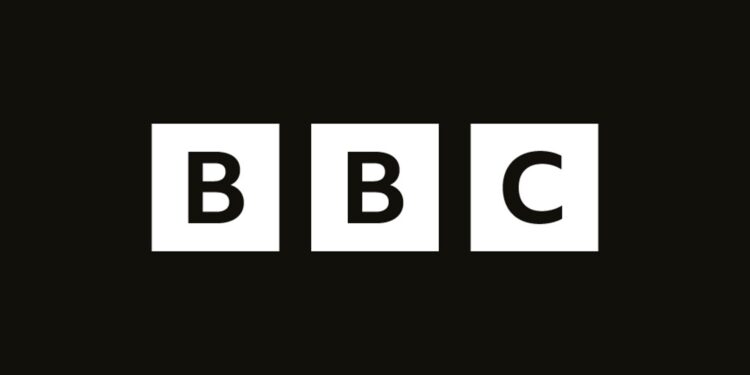The British Broadcasting Corporation and many other big media companies around the world have been accused of suppressing “wholly accurate and legitimate reporting” to further their economic interests via the Trusted News Initiative (TNI), a joint project designed to suppress supposedly harmful disinformation. Along with the Washington Post, Associated Press and Reuters, the BBC has been accused in a Texas court of suppressing competition in the online news market, thereby depriving people of vital information about matters of legitimate public concern. These include COVID-19 lockdowns, safety information about the mRNA vaccines and the Hunter Biden laptop story. TNI was set up in 2019 and acts as a gatekeeper on a number of issues, including Net Zero and the ‘climate emergency’.
According to an antitrust suit filed by Robert Kennedy Jr., the nephew of the late President Kennedy, the defendants feared what they described as an “existential threat” to their economic survival. The explosion of rival online news sources is said to have threatened to take audience share away from traditional news organisations “and to undermine consumers’ trust in these organisations”.
The TNI is an international consortium that includes Big Media and Big Tech. It acts as a gatekeeper to stem the flow of what it deems mis- and disinformation, with its tech members removing supposedly false or misleading content from their platforms. (Facebook, Google, Microsoft, LinkedIn and Twitter are all members.) Shadow-banning and de-platforming on social media can have dire consequences for the finances of online publishers, causing their businesses to fail, and TNI is accused of contributing to the collapse of online news publishers that “simply reported” claims made by credible sources such as scientists and physicians.
The Kennedy lawsuit, which claims undefined damages for a number of aggrieved online publishers, says it’s taking legal action to “defend the freedom of speech and of the press”.
According to the lawsuit, the economic motivation behind the TNI was “expressly admitted” by the BBC last year. “Actually, the real rivalry now is not between for example the BBC and CNN globally, it is actually between all trusted news providers and a tidal wave of unchecked [reporting] that’s being piped out mainly through digital platforms,” said Jamie Angus last year, then the senior BBC controller of news, according to Kennedy. To combat this, the lawsuit alleges, TNI members agreed to club together to suppress competition in the digital media world.
“Every news company has the right to decide for itself what to publish, but they have no right to combine together to restrict what their rivals can publish,” states the writ.
The lawsuit alleges that the recent head of TNI, Jessica Cecil, stated that members had signed up to a set of expectations about the actions they would take on their own to suppress reporting identified as false or misleading. So far, only four members of TNI have been named in the suit, but many other international news organisations, including Agence France-Presse, the Financial Times, CBS of America and ABC of Australia, are involved. Cecil is accused of claiming that all members had agreed to “choke off” their online rivals. These clear expectations, it is further alleged, “included a commitment by the TNI’s Big Tech members to censor such reporting on their platforms, to shadow-ban such content, to de-platform publishers who persisted in such reporting, and to work in tandem with one another to accomplish those ends”.
Note 271 in the writ reads: “Cecil took evident pride in the assertion that the TNI’s suppression of other’s online reporting did not ‘in any way muzzl[e] our own journalism’… it was of no consequence that the TNI muzzles other news publishers’ journalism.”
Much of the suppressed content flagged up in the lawsuit concerns the original source of the Covid virus, the need for global lockdowns, the safety and efficacy of the mRNA vaccines and the compulsory wearing of masks. It also included the the Hunter Biden laptop story with its reference to “10% for the big guy” ahead of the U.S. presidential election in 2020. The writ alleges that the TNI collaboration was not ultimately about keeping ‘harmful’ information from the public. Rather, it had an economic motivation. “Much of the information suppressed by the TNI was not false and was well within the bounds of legitimate debate in a vigorous free press,” it says.
A legal challenge like this was always on the cards. A small number of online social media giants have taken over the digital town square and are the beneficiaries of almost all online advertising. They have enormous power to destroy news publishing businesses, as do any media companies that join forces with them. The Texas action would also appear to have implications for all so-called fact-checkers who target publishers that produce content challenging the mainstream narrative in a cluster of sensitive areas (Covid, climate change, Ukraine). These fact-checks are often used by social media platforms to justify punitive action. The Daily Sceptic is regularly attacked by these outfits. Many of the allegations they produce might well be considered libellous since they frequently claim, without justification, that we are knowingly publishing false or misleading information. These ‘fact-checkers’ seem oblivious to the fact that they could be sued for considerable financial damages in a libel-friendly jurisdiction such as the U.K.
Chris Morrison is the Daily Sceptic’s Environment Editor.











To join in with the discussion please make a donation to The Daily Sceptic.
Profanity and abuse will be removed and may lead to a permanent ban.